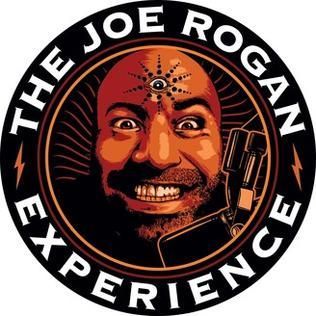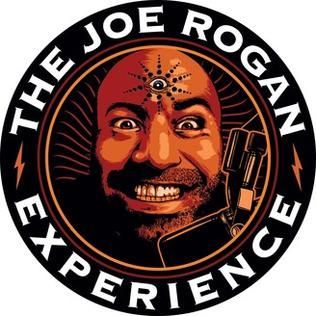Joe Rogan chats with Hal Puthoff, a physicist with a remarkable career that spans laser research, remote viewing, and the study of UFOs. Hal Puthoff is a physicist researching energy generation, space propulsion, and other related topics. He is the president and CEO of EarthTech International, Inc., and director of the Institute for Advanced Studies at Austin. Previously he worked studied remote viewing at the Stanford Research Institute (SRI). Joe and Hal cover his unique background, the strange world of remote viewing, evidence of UFOs and non-human intelligence, the physics that might explain these mysteries, and the tricky path toward revealing these secrets to the public.
Hal Puthoff's Background and Career
Hal Puthoff started out as a physicist working on lasers at SRI, but his career took a wild turn when he met Ingo Swann, a guy who claimed he could see things with his mind that he shouldn’t be able to. OK, at this point, we were interested despite (and we will get this out of the way early - this guy is boring as watching paint dry AND he has some kind of nasal issue. Tough). Anyway, this chance encounter sparked Puthoff’s interest in remote viewing, and he ran some experiments that got the CIA’s attention. Naturally, they approached him and funded a secret program that lasted over 20 years, exploring whether people could use their minds to spy on far off lands. This really happened.
Remote Viewing and Its Implications
So, what is remote viewing exactly? Remote viewing is this practice where people try to picture or describe places and things they’ve never seen, just using their minds. Puthoff worked with folks like Pat Price and Ingo Swann at SRI, and they pulled off some jaw-dropping stuff (if true)—like Price sketching a secret Soviet base that turned out to be spot-on when satellites checked it out later. The CIA naturally thought this might be useful for spying. Proving it works was (and is, we think) still is another matter. Puthoff himself admits that it is difficult to replicate across people, but he’s convinced there’s something real here worth digging into, even if it’s controversial. Our question is…you’ve been testing this for decades - a little more decisiveness or answers should be in order after that much time.
UFOs and Non-Human Intelligence (NHI)
When it comes to UFOs, Puthoff’s is a believer; the question is…what do we know, not know and what is realistic? Initially, he was brought into a government think-tank to discuss the “theoretical” scenario where the US, China and Russia found a space craft. The challenge was - what would the public reaction be. This was during the George W. Bush administration. He goes onto talk about crashed UFOs, like Roswell and others, and believes that materials from these wrecks have been tested by labs and have developed tools and materials we can’t make ourselves—like metals. He believes this points to non-human intelligence, but he’s frustrated because the info continues to remain classified by the government AND private companies. Puthoff’s all for letting the public know more, pointing to things like the UAP Disclosure Act, but he understands why it’s a slow process.
Physics and Engineering Related to UFO Phenomena
Puthoff delves into the nuance of how UFOs might work, and it really is straight out of a science fiction movie. He says these crafts could bend space and time, using ideas from Einstein’s theories and some quantum physics tricks. He’s studied things like zero-point energy and even a crazy idea called the Alcubierre warp drive, which could let you zip around faster than light if we had the power for it (we don’t—yet). Puthoff’s written a plethora of papers on this, dreaming up ways we might one day build our own ships using this technology. One redeeming quality is that Puthoff admits this is far out subject matter, but he makes it clear that there is real science behind the wild stories.
Disclosure Challenges and Future Directions
Talking about letting the world in on UFO secrets, Puthoff sees a tug-of-war between curiosity and caution. People want answers, and Congress is pushing with legislation like the UAP Disclosure Act of 2024, but there’s a catch—too much info is hidden in secret compartments, and there’s worry about geopolitical enemies getting an edge if we over-disclose. Still, Puthoff’s optimistic about disclosure longer term. He would bet that we’ll get some real answers in the next 10 years as more people demand the truth.
PODLAND’s FINAL TAKE
Hal Puthoff’s chat with Joe Rogan is a rollercoaster through some of the weirdest corners of science—from mind-powered spying to UFOs that defy physics as we know it. That said, you’ve got to be patient with this one. As mentioned earlier, Puthoff is a little tough to listen to with his nasal clearing, flat delivery and far-out stories. BUT,if you can make through that, this is a fun sci-fi ride if that’s your thing. His stories challenge what we think is possible. The push for disclosure might be messy and slow, but Puthoff’s take leaves you wondering what’s really out there and how close we are to figuring it out. The problem is…its one of those Rogan podcasts where you don’t know what to believe…other than I think you can be confident the US has and is looking into all of these areas…closely.
THE PODSCORE 3 (out of 5) MICS

